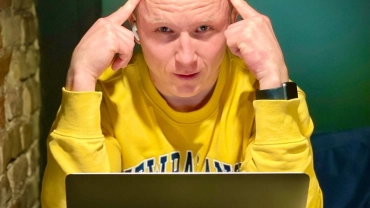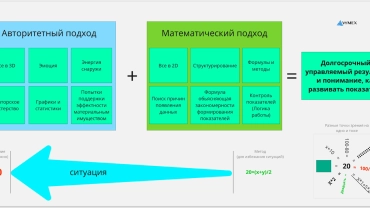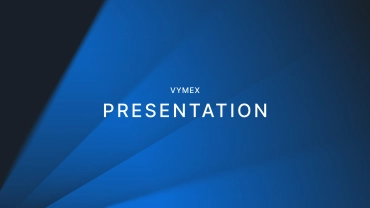I came to this conclusion when I realized that one of the reasons why startups die is that they get "flooded with money" because of beautiful marketing at the startup and a simple explanation of what is intended.
The investor, "eating" the most emotionally and minimally rational proposal, gives the project money, but in reality it needs more than that to be realized. If we are talking about projects not the level of "open a coffee shop," although they fit into this example.
With our step-by-step investment, there is a lot of stress and constant work on all possible angles of the project (to match the increase in value each month), because a pretty picture for two years will not cover it, and it is necessary that every little thing be worked out. From watering the plants to managing the data on the servers, because this increases the likelihood of new money coming in.
I also realized that even if we had calculated a figure of $2.2 million at the start, as we do now, we would not have created Vymex products at the level we are making today.
Yes, we would have built some normal prototype, making a lot of concessions for comfort. We would have had a weaker team, a less elaborate development management system, the company structure would not have been fine-tuned and not fully fit for purpose, our site would not have made it into the "Site of the Day" category at the Awwwards. It would all have been Vymex too, but its chance to compete on the world stage would have been minimal.
All because we wouldn't worry about anything, dealing with the assumptions created at the start of the project, where you don't even notice any mistakes, because there is money for everything. Yes, it's stressful to spend it, but it's there. To move forward, you'd be spending money, not looking for how to solve a problem without money, which is exactly what reinforces everything.
I'm really glad right now that I don't know how to make quick and clear presentations, because we would have raised the money in the first month.
Because of my specific nature and the complexity of presentations, I had to meet people about 150 times in 2021 and each time talking about the project, its goals and how we set everything up. I'm constantly talking it through with my brain and finding where else I can improve on some little thing. Every time I prepare for a meeting, I revise the system, refine calculations, notice mistakes and fix them all the time. In fact, with every little thing you increase the probability that your long-term goals will be realized. Every little thing, aligning the direction of the results.
The fact that we have made a sales system where every month the cost of buying shares in a project goes up, requires us to continually confirm implementation plans and improve the plan to match the stage of the project. When you have the money to "supposedly fully realize your goals," constant plan improvement is not required. You just go with the plan you put the money into. That's your agreement with the investor. And this is very dangerous, because every time new useful resources are added to the plan, which improves everything and increases the likelihood of realizing the long-term goals of the project, because they are just the interest of all the co-founders and the team.
Another thing is that we made a non-dilutive method of selling shares to investors, regardless of the stage at which they join the project. I didn't start the rounds. We determined in what month how much percent we sell and at what price, as it is selling my percent before version 1.0.
Thus, the later the entry, the lower the risks and the higher the cost. Everyone determines for himself on the scales, when the risks are acceptable and the data is enough to enter. Another leverage on investors is that there is a limited amount of interest on sale, which will be sold only until November. This breaks down a bit the plans of those who "...would have come in" when we will be showing profits. Then the sales would be at a different price altogether, or perhaps nothing at all.
But we just keep confirming the hypotheses month after month. The assumptions keep getting better due to the received/lived experience of real development, where everyone (from the office manager to the company's service station) thinks through every little detail and every month is forced to improve everything to increase the probability of new money coming in, not forgetting to fulfill the agreements with those who came in earlier.
There is a chance that this constant improvement from all angles would make one of the most sustainable projects in its field, without "extra fat on the sides." Money was spent with maximum efficiency, because you had to think about every dollar.
As of today, as I recall, we have already received more than $ 1.1 million, in total we will spend more than $ 2.23 million on implementation, plus the $110 thousand that AWS gave us for their servers.
That's 24 co-founders, many of them TOP in their market, which a pretty picture won't lure everyone.
Now I realize that if I had looked prettier, spoke more coherently and clearly, would have been more compromising at the start, I would have received the 2 million, but it was much less helpful.
Not once do I regret going my difficult and risky way, because it will be the most thoughtful company from every possible angle, at a crazy non-financial cost. But it will be one that is interesting to tell other people about.
And the co-founders (which I also am) will get their long-term, large dividends and high capitalization, at the expense of a strongly engineered company, not a flash of emotion somewhere in the local market.
Good luck, everyone, in choosing a strategy!
* facebook post



